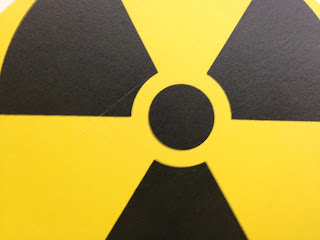What is Radiation?
Radiation has a big problem. The problem being that the public has a negative perception of it. The negative public perception of radiation is fueled by misinformation which leads to fear. Fear not, but instead respect radiation. Radiation is just a type of energy, much like heat and electricity are a type of energy. As with any energy form, too much going through our bodies can harm us.
To feel safe and be safe around radiation, you must understand it. Radiation is either elementary particles (i.e., photons, electrons) or a composite of elementary particles (i.e., neutrons, protons) or a composite of atomic particles (i.e., alpha particles) traversing through space.
Here are some key points about radiation:
- Some radiation (i.e., photons) is mass-less. Photons (i.e., light) are electro-magnetic waves that range from large wavelengths (radio wave, micro wave) to small wavelengths (x-ray and gamma ray). In the middle of the spectrum are infrared, visible light, and UV photons. For radiation protection purposes only short wavelength photons such as x-ray and gamma ray are considered to be ionizing radiation, although some UV photons can have enough energy to ionize matter. So remember, visible light is radiation too, only that it is of the non-ionizing variety.
- In radiation protection, the assumption is that when one is talking about "radiation", the person is talking about ionizing radiation, since it is the more naturally harmful type. Non-ionizing radiation can still be harmful (e.g., UV, lasers), but not for the same reasons as ionizing radiation.
- Some radiation has mass. This type of radiation is called particulate radiation. Particulate radiation is always considered ionizing. Particulate radiation is:
- Alpha particles (made up of four atomic particles, two protons and two neutrons)
- Protons (made up of three elementary particles, two up quarks and one down quark)
- Neutrons (made up of three elementary particles, one up quark and two down quarks)
- Electrons (an elementary particle itself, traditionally called a beta particle or beta "ray")



Comments